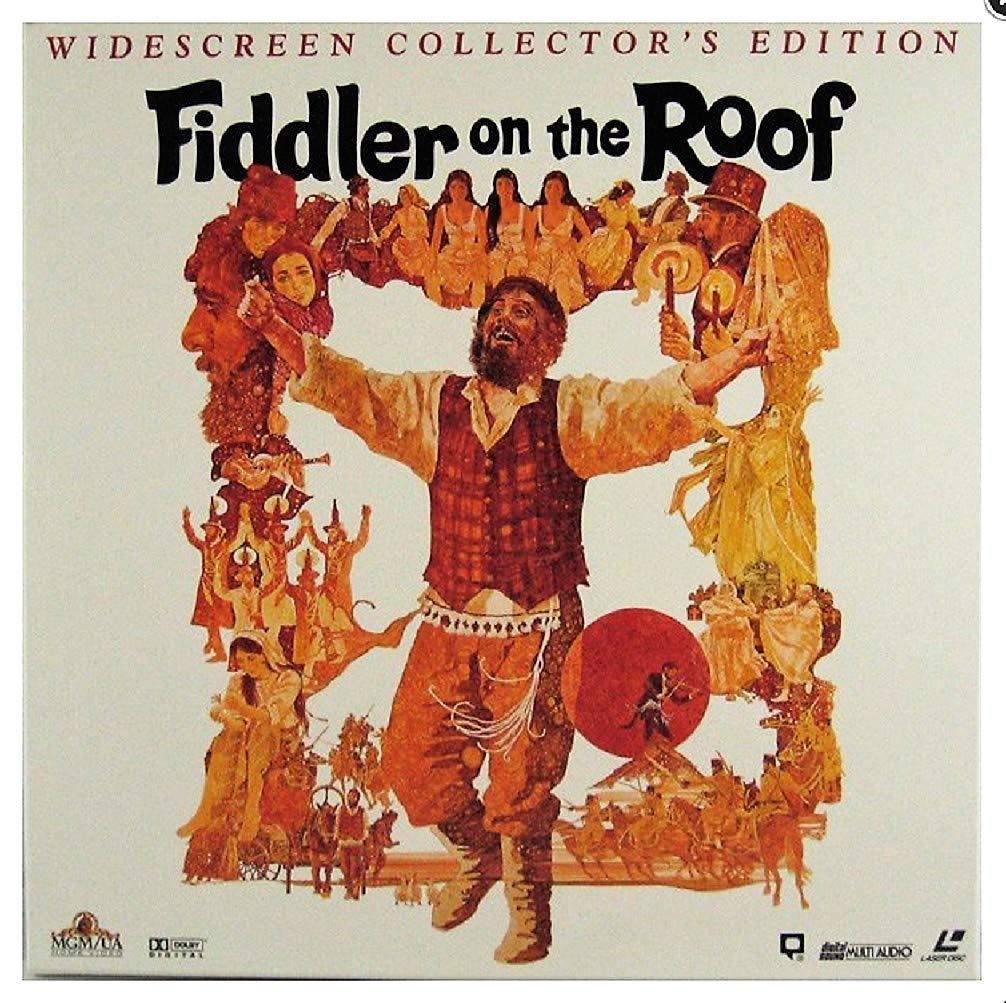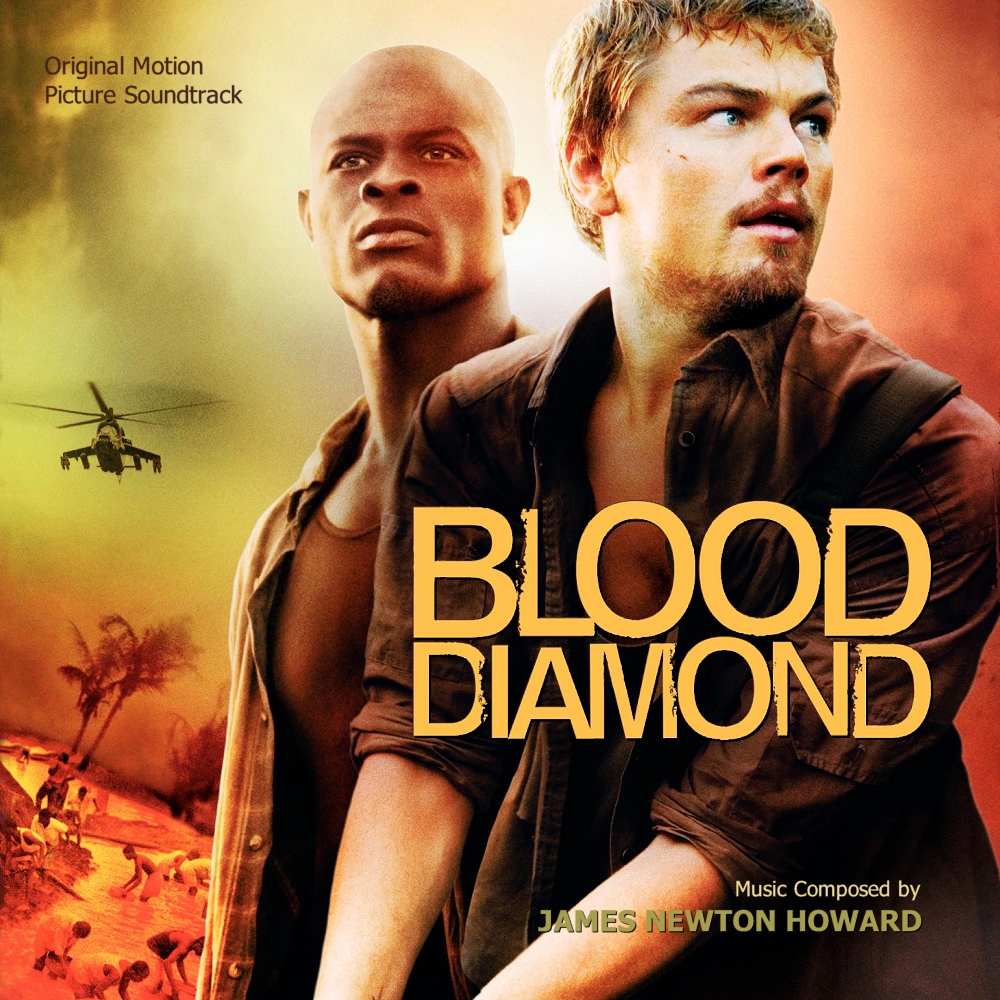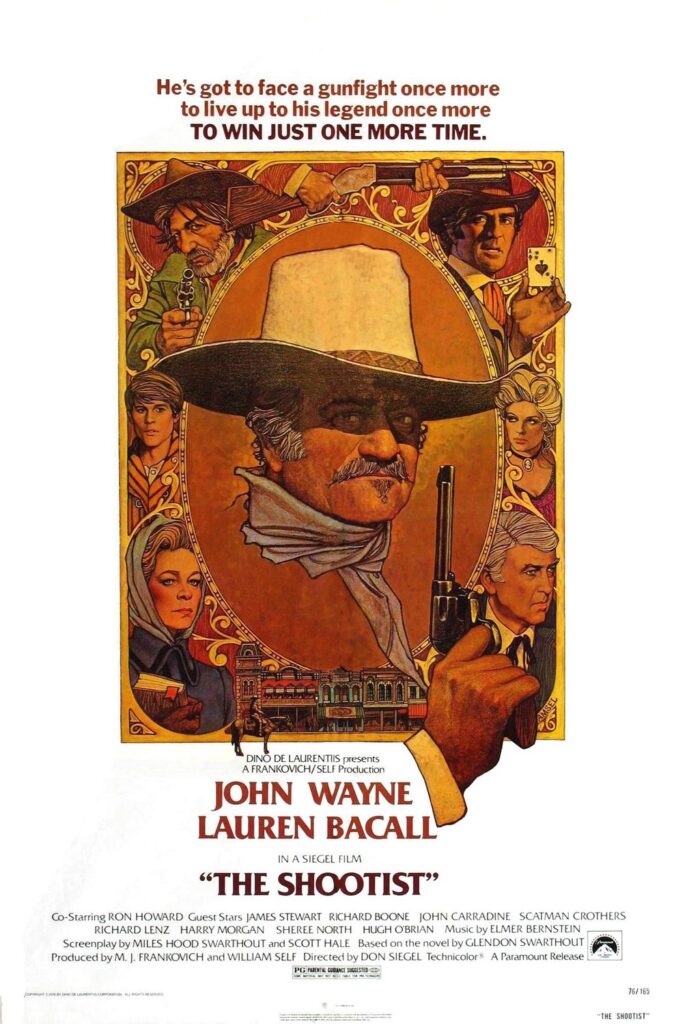The Shootist
In “The Shootist”, J.B. Books is not feeling up to snuff.
He has cancer. What are the concerns
of a man dying.
To die
commensurate with the way he lived his life.
Books dies in a gunfight.
McIntosh dies in the desert, under a broken wagon,
fighting Indians.
Norman Thayer will die of heart failure
by the side of his wife, Ethel.
Two police officers
die investigating a stolen moped at a gas station
in the Bronx.
One buys it between the eyes, the other in the back.
The killer out on early parole
from a manslaughter rap.
The DA blames the judge, the judge blames the parole board,
and the board says the jails are overcrowded.
What should I be doing, old turtle.
Devote myself to re-order the world
or crawl off to a lonely spot and preserve myself.
We are trying
to educate everyone to their individual capacities
and see that all are fed, clothed and sheltered adequately.
Because the suffering of one citizen makes suffering
for another, the slow death of one sometimes makes
the sudden murder of another.
There is this
black rock we live on and its lovely mantle of green.
It is all that is perfect. And everything of it is
perfect that respects its integrity. On the subway
I was amused to find, hidden in the confused
mass of anonymous, bleak graffiti, unseen
by the studied, expressionless passengers,
in pink, delicate script, vertically written,
the word penis.
People are the element I live in.
The world is pushy, we are bone,
the numbers of us overwhelm.
It is going to be hot again soon
and the Bronx will actively resent it.
Books dies in Carson City,
only two or three people will miss him at all.
He died alone as he lived,
with his enemies.
The Terminator
One leaf falls
holographic illusion
across time the Terminator travels
to shape Sarah Connors’ destiny.
Heart attack
a common enough destiny
as common as young men discussing girls’ tits.
The Constitution
is the document we refer to, the lodestone
to correct course and not go crazily astray.
Lose all purpose beyond murder, child sex and food hording.
Illuminated manuscripts
in a dark age, tape decks remind us of our voice
our communal voice
Supremes and Fred Astaire
the silken wail.
I lie alone in the night
its sensuality makes the best sense
it does or does not clarify the day
of classes or clients or chain saws
whatever fever may have infected me at the moment
a fever to achieve access to foreign films while living in the mountain community of
Schroon Lake
the fever to instruct the American people how to apply ideals and practicalities of
Constitution to international relationships
the fever not to die today, to maintain consciousness just one more season (and one
more after that).
Anyway, what is being discussed–
the finiteness of one life–
or perhaps existence continues in another dimension, on another frequency
no owl hoots
but other purpler and indigo occurrences
with other purposes
as incomprehensible and wonderful as these purposes
to choke on a cherry pit or nuclear bomb
to wail our wail together
each individual identifiable hoot and wail, loud laugh and suppressed scream
one orbicular chant, humanity, from India to Indiana
complete, one sing.
I feel this way
searching for my place among you
childless, but a child among children
obeying or not obeying the speed limit
as my hormones permit
everywhere among brothers, the sisters among sisters
the races together exterminating the last rhinoceros and preserving its genes at the
zoological society
my species attacking entire rain forests, temperate forests and boreal forests
like the engraver beetle in the red pine’s inner bark.
Thus, I occasionally cheer the Terminator
cheer the machine and neutron bomb
even in the face of individual heroics, the male and female face
their physical love, tender and violent
I don’t know what I want.
It could be simple
as this headache.
Not to despair
just to care enough to think clearly and accept 10,000 years of history.
Not to hate those in authority
humor is the only remedy
yellow ape teeth chimping in the glass death face
and ritual is remedy
a death song
and one for planting
and one for the beginning of loving.

The Burning of the Jews
It was a woodcut in our high school history text, Unit 4 Beginnings of the Modern World,
that so disturbed,
from the Nuremburg Chronicles depicting “the burning of the Jews,” flat perspective,
faces of the victims among flames, in no particular agony, not especially Jewish,
during the Black Death 1/3 of Europe died 1347-1351 alone. Although
you die together you die alone.
Earlier that week
I had attended our 6th grade’s performance of Fiddler on the Roof,
at first thinking
Coltrane should have recorded Matchmaker as a bookend to My Favorite Things
but as the play darkened
with the town’s absorption into the diaspora, democracy
yet unthought of and rule of law a fig leaf for authority
Jasper, who played Zero Mostel, delivered his line well to the effect
you=re just doing your jobs while wrecking our lives.
Anyway, nothing like that is happening here, is it?
The gardener planting tomatoes, the gravedigger finding skulls,
there is so much life a little death won’t matter.
I’m reading Bloom in the Times, how
anyone who doesn=t believe Israel should exist is by definition anti-Semitic.
Come to find out, I may fall into that category–not that Israel shouldn’t exist,
but as a so-called Jewish state
anymore than a Muslim or Christian land. To some
Jewishness is not a religion, it’s an ethnicity. You have no problem
with the Swedish state, do you?
Should the Swedes be expected to open their borders to the Finns?
Jasper
was a beautiful ham,
big as Zero.
A friend posed
this question: must all states be melting pots like the United States?
I said yes
not because they should but since
it’s inevitable. Let labor flow like capital!
I hate when people disagree with me.
I get angry.
When a plate breaks, it asserts another possibility.
America was the last word of the play and brought a tear of pride
to my eye.
Immigration, exasperating argument re the Other.
How many’s more than enough? 9 billion, a rational,
real number that exceeds or
we’re convinced
is within the carrying capacity of the planet.
Climate change is the new Black Death.
I like the Amerindian body type and face mixed in with the European, African.
The irrepressible economy rolls out reams of logs, ores of elements, bags of ice, fields
of rice.
Embargo. The moon stares, bare, full of interstellar space.
Better a cold shoulder than a visit from our military.
The crazy Nazis must have felt themselves extraordinarily compassionate toward the
mother, earth, the goddess, history, or some such abstraction and, thus, acted on a
fraction of all they did not know.
Selfless soldiers just doing their jobs expanding the border or,
on the other hand, collecting fagots for “the burning of the Jews.”

A Gun in Every Home
Two fine films: The Lost City and Blood Diamond.
I joined Blood Diamond during a village massacre
and said to my wife A gun in every home.
Those devils would think twice
before razing the village and seizing the boys.
A well-regulated militia.
The local militia the most interesting moment
in a strong film with motive (economic, emotional), action (chases, fights) and a sexy,
sexless love story.
Use of violence by the local militia for a limited purpose: protect the community,
the young
from the janjaweed. The crop from the weed.
Limited scope and defensive posture
but armed and coordinated, cooperative, the men (and the women) side by side.
Warriors at the gate, you will not run, you will not bargain.
Just violence = limited scope, defensive posture.

Great music. Cuba, Africa.
The Lost City, when the communists tell the club owner under threat of violence
No saxophones in the band. The saxophone!
Invented by a Belgian–Look what the Belgians are doing in the Congo!
When the state’s violence is turned against the citizenry
for non-violent acts.
This quiet neighborhood, July,
undergirded by violence, force. That’s a given–
any farmer, custodian, EMT will tell you that.
Without just violence
Gandhi’s scope, and King’s, might be vanishingly limited,
negligible (but not non-existent)?
Regarding King
the matter is simple–he was non-violent but dependent upon
federal force to counter the South’s violence.
No doubt without the larger force, the non-violent would be overwhelmed by southern
violence.
Here, non-violence was a tactic, not an ethic.
Gandhi, however, had no violent partner to protect him from the British. Or did he?
1) There was the potential violence of the population, which Gandhi restrained but
could release which the British feared, and
2) It was the restrained (limited scope) violence of the British that allowed Gandhi to
exist rather than be extinguished–this restraint was a (British) cultural imperative
(limited scope) as well as emanating from Britain’s view of India as a protectorate
and valued citizen of the united kingdom (defensive posture).
What about violence or threat of violence to compel compliance with community
as in mortgage foreclosure, driving without license, drug possession.
Perhaps it is necessary violence to maintain orderly commerce, the common space, and
preempt bad behaviors associated with otherwise neutral, private acts.
The defensive posture is the common good; the limited scope is forgoing deadly force.
But the citizen, too, must maintain a disciplined, armed non-violence,
in case the state (the janjaweed) engages in an unjust, autoimmune violence.
Hence, a gun in every home.

Robert Ronnow’s most recent poetry collections are New & Selected Poems: 1975-2005 (Barnwood Press, 2007) and Communicating the Bird (Broken Publications, 2012). Visit his web site at www.ronnowpoetry.com.

